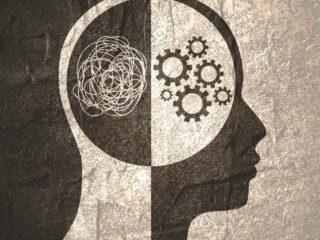As millions of Americans focus on their physical health and grapple with difficulties associated with the pandemic, Mental Health Awareness Month during the times of COVID-19 seems more important than ever. Experts around the world are beginning to stress the importance of support services for people struggling with their mental health due to widespread closures, social distancing guidelines, and the economic and psychological effects of the virus. Meanwhile, May is Mental Health Awareness Month – a time dedicated to providing support, educating the community, and fighting the stigma to help those who struggle with mental illness.
In a climate that revolves around social distancing and illness prevention, people around the world are experiencing isolation and loneliness. People with mental health conditions, like depression and anxiety, are already prone to feeling isolated and lonely. Sadly, social distancing guidelines don’t help and put people with mental illness at an increased risk of developing severe symptoms. The lack of social connections around the world can produce devastating effects. As a result, the National Alliance on Mental Illness has declared this year’s Mental Health Awareness Month theme as “You are Not Alone.”
Mental Health Awareness Month – You Are Not Alone
The Anxiety and Depression Association of America (ADAA) reports that nearly 450 million people globally suffer from a mental illness. However, only 33% of these individuals seek mental health treatment. It’s not always easy to ask for help when you have a mental illness. Plus, there is a stigma that surrounds mental health. For example, people with depression are sometimes viewed as “weak,” “lazy,” or “too sensitive.” People with anxiety are sometimes viewed as “overdramatic” or as people who “worry too much.” Rather, these individuals suffer from real medical conditions that often require professional treatment.
People are typically willing to go to their doctor if they experience a physical ailment, however, people with mental illness are more likely to suffer in silence. Each May, Mental Health Awareness Month aims to educate the community about mental illness and advocate for policies that support these individuals in order to fight the stigma.
Sadly, due to the highly transmissible novel coronavirus, many support groups have stopped meeting and people are scared to go somewhere for treatment in fear of contracting the virus. As a result, NAMI’s “You Are Not Alone” campaign aims to expand digital tools to provide support for mental health during COVID-19, build connections among people, and make it easier to obtain help while social distancing.
In a time of social distancing, it’s crucial to stay connected with your loved ones and be reminded that you are not alone. In an effort to spread this awareness and connect people virtually, NAMI is featuring personal stories from real people who suffer from mental illness. By speaking out and sharing a message of hope, people can remind others that, even though they are social distancing, they are not alone.
Concerns over Mental Health During the COVID-19 Pandemic
Virtually every American is affected by COVID-19 in one way or another. Some are on the front lines, putting their own health at risk to save the lives of others. Many workers are transitioning to an unfamiliar work-from-home environment, some of whom are balancing work with taking care of children. Others are desperately waiting for financial relief while non-essential businesses have shut down and millions of employees have been laid off. Whatever the case may be, unprecedented times pose serious risks to the mental health and overall well-being of people across the nation.
In addition to the stress, fears, and worries surrounding the pandemic, people are social distancing and trying to adhere to stay at home orders with no clear end in sight. This lifestyle change can severely affect people’s mental health if they don’t have the right coping strategies at hand. Adjusting to this temporary way of life isn’t easy and it’s especially hard for people who are feeling lonely right now. After all, the effects of perceived loneliness as a result of social distancing are dire and should be taken seriously.
Although there is a distinct difference between social distancing and isolation, a lot of people feel lonely right now. As humans, we have an innate need for social contact with other humans. When people are deprived of social contact, the loneliness associated severely impacts one’s cognitive, mental, and physical health. A report published by the American Psychological Association provides evidence that links social isolation with an array of adverse physiological health risks, including:
- Poor sleep quality
- Depression and anxiety
- Accelerated cognitive decline
- Impaired cognitive functioning
- Decreased cardiovascular function
- Higher stress levels
- Lower immune functioning
The far-reaching effects of COVID-19 increase the risk of both developing symptoms of mental illness and worsening symptoms of an existed mental illness or substance use disorder. As a result, it’s more important than ever to practice self-care, check on your own mental health, and reach out to your loved ones to see how they’re doing.
Supporting Your Mental Health During COVID-19
Whether you’re feeling depressed, anxious, stressed, or suffer from a mental health condition and have noticed worsening symptoms, there are many practical steps you can take to cope. These include:
- Take deep, slow breaths when you feel overwhelmed
- Eat healthy, regular, and balanced meals
- Maintain a regular sleep schedule
- Get plenty of exercise
- Spend some time outdoors every day
- Video chat with your friends and family every day
- Avoid alcohol and drug abuse
- Don’t spend a lot of time on social media
Most importantly, if you or a loved one is struggling during this time, don’t be afraid to reach out for help. Addiction treatment centers and counseling services are transitioning to virtual telehealth services at increasing rates to meet the rising need for behavioral health treatment.
At Ohio Addiction Recovery Center, we are dedicated to providing support for individuals with substance abuse and mental illness during the COVID-19 pandemic. Whether you’re trying to stay sober during a global pandemic or need support services for mental health, we’re here to help.







